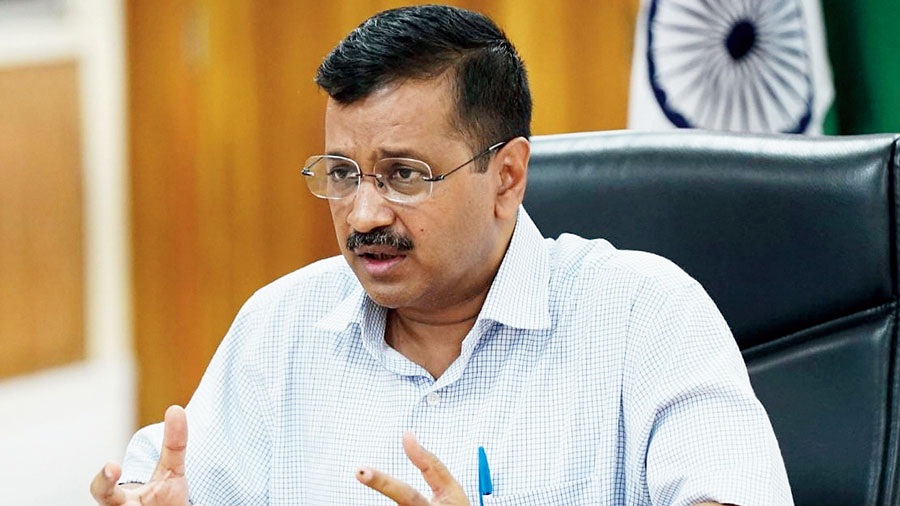To avoid wasting the billions of rupees that are now being spent on maintaining two administrative structures and their duplicating efforts in some situations like health and education, it is imperative that all agencies in India’s capital come together under one roof.

Schools in Delhi are jointly operated by the state government and the city’s municipal authority, the Municipal Corporation of Delhi (MCD). Neither is worthy of India’s capital city. The majority of Delhi’s population has no idea who oversees various government organisations including the Delhi Development Authority (DDA), Jal Board, and Public Works Department (PWD).
Workers at MCDs have reportedly gone on strike because the state government is late in making payroll payments. Garbage piles have accumulated in several locations, and sewage is backing up in others, yet when citizens contact state government, they are told to contact the MCD or forwarded to departments that report to the Lt. Governor.

The Metro, which is run by the Metro Authority, is the greatest and cheapest means of public transportation in the Capitol, but the party running for state elections always seeks to secure freebies for women voters even in the Metro Authority. Traffic and transportation systems need to be streamlined and hundreds of more buses should be purchased.
Some colony’s Malis does an excellent job of maintaining the park behind the property, however, the PWD appears to be responsible for the overgrown mess in front of my house. This makes zero sense.
Unfortunately, Swacch Bharat is only applicable in Lutyens Delhi. Delhi is littered with trash that isn’t being cleaned up on a regular basis, and residents aren’t doing anything to fix the problem. Urgent measures are needed to ensure that food and paper plates are not tossed about, such as requiring store owners and street vendors to have large trash cans. This behaviour will only be discouraged by imposing heavy fines.
If people are going to be fined for doing things like double parking or running a red light or going the wrong way down a one-way street, then we need additional traffic cops and parking spaces.
More than anything else, we need a centralised authority in the nation’s capital and local complaint cells where people can report that things that should be done on a regular basis aren’t.
The quality of care at Mohalla hospitals is poor. Many of my low-income, part-time worker clients complain that the physicians at Mohalla clinics never show up when they need them, despite the fact that they suffer from conditions such as high blood pressure and diabetes. The much-touted mohalla clinics must have room for improvement.
Those in charge of the mohalla clinic could do well to learn from Sadhu Vaswani, a clinic in our own neighbourhood that provides excellent care at reasonable prices thanks to the frequent visits of experts who are available at various hours. Instead of opening more, these clinics should be supported and promoted. Patients in need might be seen at the clinic for just Rs 20 and given coupons for free medication thanks to government subsidies. My poor part-time worker needed to collect from her staff every month to pay for her diabetic medication.
Charak Palika, a little hospital maintained by the NDMC that serves the city’s needy, is another shining example. If the nation’s capital wanted, it could simply consider adding more of these smaller hospitals where there is no need to wait in large queues.
To have certain roads maintained by the MCD, some by the PWD, and highways by the Central Government, all of which sound absurd. Certainly, there is room for all roads outside of interstates to fall under the jurisdiction of a single body.

Wasted time and resources are commonplace. Instead, this funding might improve slum neighbourhoods by constructing and equipping additional medical facilities, beautifying slum areas, and bolstering educational opportunities for residents.
In Delhi, every colony has its own RWA (Residents Welfare Association) made up of people who are chosen by their peers and who have the incentive to maintain a clean and safe environment for everyone. They contribute their time and energy for free and receive support from numerous offices. They don’t spend a dime on electoral infrastructure. Maybe this will be the last election Delhi needs. This would allow for millions of rupees to be allocated toward enhancing Delhi’s aesthetics and squat-area sanitation.
The MCD, the Jal Board, and similar organisations need to be held to far higher standards of transparency and accountability, with the option of dismissal for any who fail to meet these requirements. I’ve encountered cases when sweepers just didn’t show up after clocking in. After I had him brought it to me, he said that his position was permanent and that I had no right to terminate him. There needs to be a shift in this. It is preferable to hire out such tasks.
The Delhi Union Territory (UT) functioned effectively as a centralised government from 1956 till 1991. If we can’t get that back, we need to make sure the capital is treated as a full state. The ongoing power struggle between two administrative bodies in Delhi means that the city’s residents’ pressing demands are not being met.

